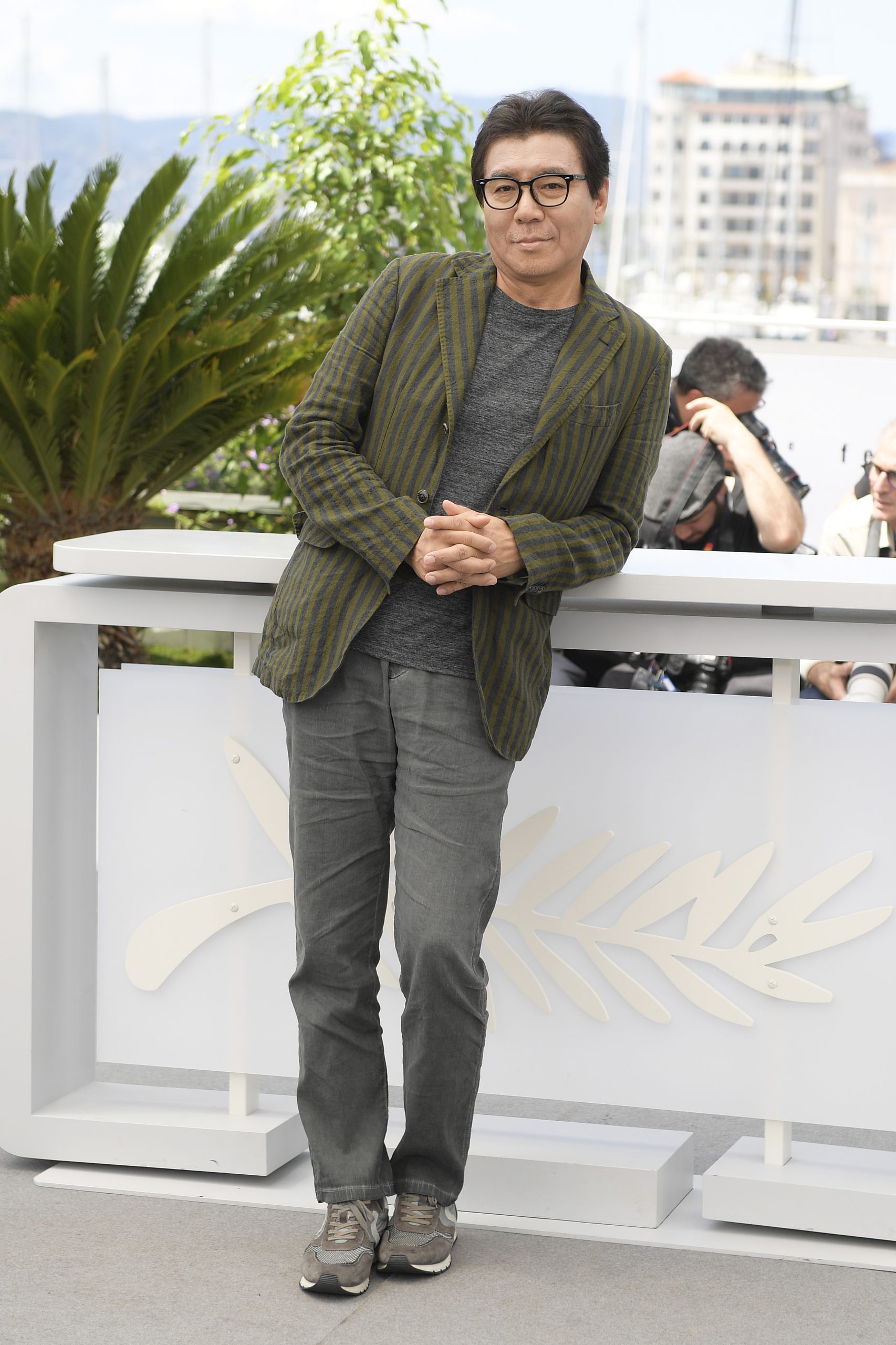Kim Jee-woon: From The Stage To Hollywood & Net Worth - Latest
Can one director truly bridge the gap between the raw energy of Korean cinema and the blockbuster ambitions of Hollywood? Kim Jee-woon, the South Korean auteur, has not only navigated this chasm but has emerged as a globally recognized figure, reshaping cinematic landscapes with his distinct vision.
Born on July 6, 1964, in Seoul, South Korea, Kim's journey to cinematic prominence began far from the glitz and glamour of the silver screen. Initially, he honed his craft in the world of theatre. He served as both actor and director, developing the skills that would later define his unique directorial style. This period provided a crucial foundation, instilling in him a deep understanding of storytelling, character development, and the nuances of performance. The stage was his training ground, and the lessons learned there would become the building blocks of his future cinematic triumphs. Kim made the transition to cinema in 1998, marking a turning point in his career trajectory. His subsequent films would captivate audiences and critics alike, establishing him as a major force in the industry, not just in his home country, but internationally.
| Category | Details |
|---|---|
| Full Name | Kim Jee-woon () |
| Date of Birth | July 6, 1964 |
| Place of Birth | Seoul, South Korea |
| Profession | Film Director, Screenwriter, Producer |
| Education | (Information not readily available) |
| Notable Awards |
|
| Notable Works |
|
| Net Worth (2024 Estimate) | $15 Million |
| Family | Information not readily available. Mentions of Kim Ji-sook (sister) and Kim Ji-won (brother) are noted. |
| Official Website (Reference) | Wikipedia (Please note that information on this page may vary, and it's recommended to cross-reference with other reliable sources) |
Kim's breakthrough into the film world arrived with his directorial debut, The Quiet Family (1998), a darkly comedic horror film. This film, about a family running a mountain inn plagued by guest suicides, was a bold statement of intent, showcasing Kim's talent for blending genres and his penchant for the macabre. It immediately established his unique voice and laid the groundwork for the diverse body of work to follow. The film's success was not only commercial but also critical, solidifying his status as a rising talent in the Korean film industry.
The critical and commercial success of The Quiet Family opened doors for Kim to explore a wider range of cinematic styles. The subsequent years saw him directing and writing a series of acclaimed films that further solidified his reputation. These films, characterized by their stylish visuals, compelling narratives, and memorable characters, brought him considerable recognition. They offered a glimpse into his versatile talent and a testament to his ability to continually evolve his craft.
In 2005, Kim delivered A Bittersweet Life, a neo-noir action film that further cemented his reputation for visual flair and masterful storytelling. A Bittersweet Life showcased his ability to weave intricate narratives and build suspense, a hallmark of his work. His ability to create visually arresting scenes and the films themes of loyalty and betrayal resonated deeply with audiences, pushing him to the forefront of contemporary Korean cinema.
The international recognition Kim garnered for his work in South Korea opened doors to Hollywood. In 2013, he made his U.S. debut with The Last Stand, an action film featuring the return of Arnold Schwarzenegger to leading roles. This project was a significant achievement, as it marked a bridge between his distinct Korean style and the demands of a major Hollywood production. While the film showcased his ability to work within a large-scale studio system, the experience also highlighted his commitment to maintain his distinctive vision.
Kims ability to work across genres is another distinctive trait. His films navigate the realms of comedy, drama, action, and horror with equal measure. This versatility is showcased in films like I Saw the Devil (2010), a brutal and unflinching thriller. I Saw the Devil is a dark, disturbing exploration of vengeance, showcasing Kim's willingness to delve into the darkest corners of human nature and push the boundaries of the thriller genre. It underscores his status as a filmmaker not afraid to explore challenging subject matter.
Kims impact extends beyond mere commercial success; he is a significant artistic influence, contributing substantially to the evolution of both Korean and international cinema. His aesthetic choices, stylistic innovations, and unique narrative sensibilities have left an enduring mark. Numerous filmmakers have cited his work as an inspiration, cementing his legacy as a true cinematic visionary.
The year 2016 saw Kim involved in the production of Asura: The City of Madness. This film, a gritty crime drama, reaffirms his ability to craft compelling narratives centered on moral ambiguity and corruption. The complex characters and dark themes of Asura further demonstrate Kims versatility and commitment to challenging the audience.
Furthermore, the influence of Kim's work is evident in Hollywood. That same year, Oldboy, a film with similar thematic elements as Kim's other works, was remade in Hollywood by Spike Lee. This adaptation, with Josh Brolin in the lead role, illustrates the profound impact of Kim's storytelling on an international scale, demonstrating his works universality and appeal.
The recognition of Kim Jee-woons work is reflected in the awards he has received throughout his career. His directorial accomplishments were recognized by the 53rd Baeksang Arts Awards in 2017, confirming his status as a leading figure in the Korean film industry. Additional accolades such as the Washington D.C. Area Film Critics Association Awards and the Houston Film Critics Society Awards are a testament to his outstanding work and its recognition by his peers.
The dedication and groundbreaking work that Kim Jee-woon has committed to the film industry over the years has resulted in an estimated net worth of $15 million in 2024. This signifies not just financial success, but a significant recognition of his enduring contributions to the art of filmmaking.
Kim Jee-woons path to success shows that he began his career by going on stage. This shows his dedication to acting and directing, which became the cornerstone of his later works. His immersion in various artistic forms gave him a depth that is apparent in his films' technical brilliance, story-telling, and profound character development.
Kim's work showcases a mastery of genre-bending, mixing humor, horror, and action with unparalleled skill. He has shown that these genres are not exclusive and can coexist to create complex narratives. His capacity to skillfully blend genres makes his work unique. His films, known for their stylish visuals and complex narratives, draw in viewers and hold their attention from beginning to end.
Kim Ji-woon's contribution to the film industry will always be valued for his unique style, artistic skills, and capacity to cross cultural boundaries. He continues to inspire and influence filmmakers and spectators across the globe, from his early days in Seoul's theaters to his success in Hollywood. His films show his commitment to perfection, originality, and artistic excellence, demonstrating the depth and lasting influence of his career.
In conclusion, Kim Jee-woons career is a testament to the power of artistic vision, versatility, and relentless dedication. His journey, from the theatrical stages of Seoul to the Hollywood sets, showcases his ability to adapt and thrive in a constantly evolving industry. His enduring influence on Korean and international cinema solidifies his legacy as a true auteur, a master of his craft, and an inspiration to filmmakers worldwide.


